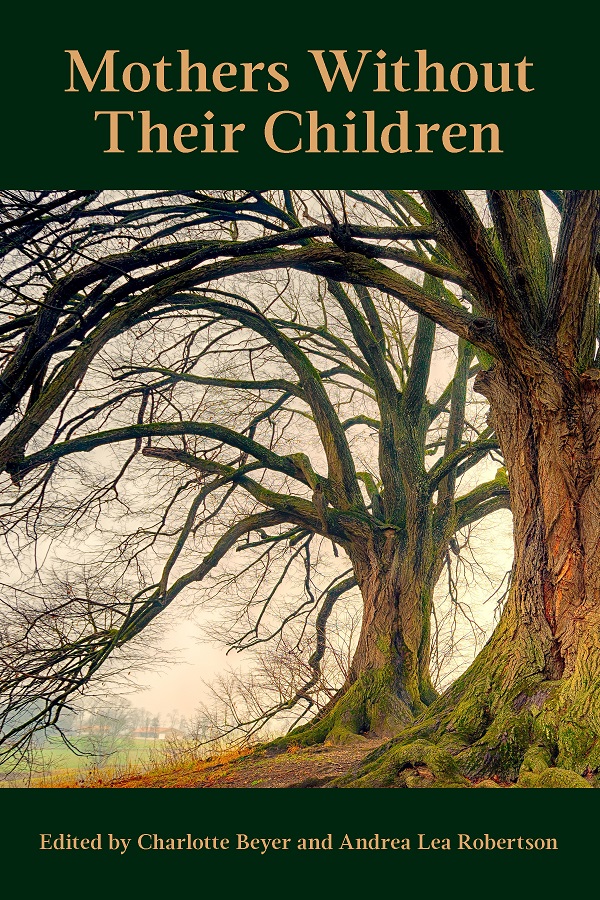
Price: $34.95
Page Count: 284
Publication Date: January 2019
ISBN: 978-1-77258-173-7
A compelling and timely study of motherhood in its contexts of loss and absence, Mothers Without Their Children explores the junctions at which scholarly studies of motherhood can be confronted in their complexities. A significant contribution to the field, the book’s key achievements can be found in the presentation of maternal subjectivities and scholarship as an essential nexus of socio-political counter-narratives and discourse. An account of four women giving birth whilst incarcerated is an essential documentation and interrogation of US policies surrounding motherhood in jail. Another chapter interrogates mothers and the prison system in Ireland, presenting the concept of ‘a bad mother’ – a frequent media phrase – in a new light, revealing the consequences of perceptions and inadequate social infrastructure upon mothers. Contributors come from a broad range of disciplines and geographical locations and engage with an impressive range of scholarly perspectives relevant to the topic. Fundamentally, the book makes a dynamic and urgent case for motherhood-as-lived-experience, presenting those maternal subjectivities that are often silenced or dismissed as valuable counter-narratives.
-- Carolyn Jess-Cooke, Lecturer in Creative Writing at the University of Glasgow.
Mothers Without Their Children is an important and fascinating collection. It explores, challenges and questions the figure of the mother without child in literary, cultural, creative and social contexts. In this collection, you will find raw and heart wrenching personal reflection, critical analysis and ethnographic study. Each offers distinct insight into a much under explored topic.
-- Dr Kate North, SFHEA
Senior Lecturer in Creative Writing/Darlithydd mewn Ysgrifennu Creadigol
Click here to read a review by Cheryl Hopson in Studies in the Maternal
Acknowledgements
Introduction: Researching and Re-Imagining Mothers Without Their Children
Charlotte Beyer
I. Textualities and Ambiguous Mothering Status
• The Birth Mother without Child in Joanna Murray-Smith’s Pennsylvania Avenue
Emma Dalton
• For The Love Of: A Motherline Of State Violence And Affective Residues
Lizbett Benge
II. Institutional Frontiers and Othered Mothers
• “It was like my soul was back”: Pregnancy, Childbirth, and Motherhood during Incarceration
Brittnie Aiello
• Mothering Interrupted: Mother-child separation via incarceration in England and Ireland
Sinead O’Malley and Lucy Baldwin
• “No Girl Could Keep Her Baby”: Depictions of Irish Mother and Baby Homes in June Goulding’s Memoirs The Light in the Window
Charlotte Beyer
• Protests and Plans: The Mothers of Compton Place Ragged School, 1850 – 1867
Laura M. Mair
III. Having to Live and Mother Through It: Economic, Geographic, Political, and Racialized Inequities
• Grieving Absent Children in “Three Seasons”
Kristin Lucas
• Mothers’ Voice from the Margin: Representation of Motherhood in Mahasweta Devi’s Two Short Stories
Indrani Karmakar
• Toward Reproductive Justice: Single Mothers’ Activism against the U.S. Child Welfare System
Shihoko Nakagawa
• Towards Solidarity in Mothering at the Borderlands: Suggestions for Better Legal and Social Treatment of Mothers Migrating Across Borders Without Children to Work
Rebecca Jaremko Bromwich
IV. Motherhood Reconfigured by Death
• Grieving in Silence: Repercussions of the Family Ideal on Women with Pregnancy Loss
Sheri McClure
• The Immigrant
Maya Bhave
• Figure Drawing
Rachel O’Donnell
• Suppress and Express: Breast Milk Donation After Neonatal Death
Katherine Carroll and Brydan Lenne
V. Navigating and Resisting Exile
• “You’re Not Really There”: Mothering on the Border of Identity
Marilyn Preston
• Newborn Custodial Loss from the Perspective of a Midwife
Andrea Lea Robertson
Charlotte Beyer is Senior Lecturer in English Studies at the University of Gloucestershire, UK. Her background is in Women’s Studies, and she has a long-standing interest in motherhood and maternal studies. Charlotte has published widely on crime fiction and contemporary literature. Her edited monograph Teaching Crime Fiction will be published in summer 2018. Charlotte’s co-edited monograph for Demeter Press, Travellin’ Mama: Mothers, Mothering and Travel with Janet MacLennan, Dorsía Smith Silva, and Marjorie Tesser will be published in spring 2019. She is on the Editorial Boards for the journals Feminist Encounters, The New Americanist, and American, British and Canadian Studies, and is Area Editor for The Literary Encyclopedia (post-1945 crime fiction).
Andrea Robertson, RM, MHSc: I have been a Registered Midwife in Ontario, Canada since 2003 and member of faculty in the Midwifery Education Program at Ryerson University since 2010. My path to midwifery includes frontline work in shelters and services for women experiencing past or current violence, housing instability, and mental health issues. Along with close colleagues, I am committed to improving access to midwifery for populations who typically experience marginalization. I am grateful for the unrelenting support of my partner and children, and to each person who has included me in their pregnancy and birth experiences.


